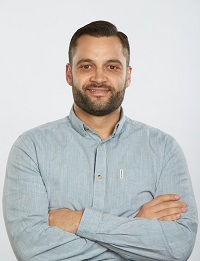In the past few years, Kansas City has made real progress toward fixing one of the biggest problems facing its most promising companies: a lack of investment dollars.
Several investment funds are now looking to provide capital to the city’s emerging startups. Some are expanding from other cities, while others are homegrown. They all could be a vital resource for young ventures that need money to keep growing.
Who are these new players?
» Leawood’s Flyover Capital has made a series of investments in EyeVerify, ClaimKit and other high-potential technology startups.
» Firebrand Ventures—helmed by John Fein, the former managing director for Techstars at the Sprint Accelerator—is raising a $7 million fund that will invest in startups from the greater Midwest.
» The KCRise Fund—a spinoff of the KC Rising economic development initiative—just announced that it has received $10 million in commitments from investors. It will function as a “sidecar fund” that co-invests with larger venture capital funds.
KCRise is designed to make newer investors feel more comfortable putting money into local startups. Darcy Howe, a longtime angel investor, serves as the managing director.
» The Collective Funds—whose founders have ties to BetaBlox, the Angel Capital Group, the Sprint Accelerator and other groups—plans to invest $10 million in Kansas City startups.
KCSourceLink has been tracking the local funding scene as part of its annual We Create Capital report. This year’s study showed a growth in funds that was “way beyond any expectation that we had,” said Maria Meyers, who heads up KCSourceLink.
“We didn’t get there in a year. I wasn’t expecting to get there in a year,” Meyers said. “But boy, did we get pretty far down the path.”
Why KC Needs More Startup Investors
These new funds could help address a missing link in Kansas City entrepreneurship.
If you’re a relatively small startup and you need less than $100,000, Kansas City has several incubators and grant programs that can help, said Erik Wullschleger, managing partner at The Collective Funds.
There also are venture capitalists who are interested if you’ve been in business a few years, are generating revenue and need more than $1 million in capital.
The options are more limited for companies that need to raise $300,000 to $500,000—money that would allow them to hire key personnel, increase sales and keep expanding.
“There’s a huge gap in the middle,” Wullschleger said.
Why do startups have a harder time finding money at that stage? Young companies—especially tech-based ventures that need to pay for R&D—often can’t secure a traditional bank loan, Meyers said. Startups can help diversify an individual investor’s portfolio, but investors may be wary about the risk.

Fein saw the problem firsthand when he was overseeing the Techstars program at the Sprint Accelerator. The program attracted a string of high-quality ventures to the city. Many had started earning revenue, but it was nearly impossible for them to raise funds here.
In the 2015 class, at least five startups expressed interest in relocating to Kansas City if they could raise $300,000 to $500,000.
“None of them were able to do it in this region,” Fein said. “All of them left, and most of them raised money elsewhere.”
That represents a problem for Kansas City’s larger economy. Tech-based startups might be small now, but if they survive, have the potential to grow big quickly. Kansas City can’t really recruit large corporations to move their world headquarters here. So if the metro wants another Garmin or Cerner 20 years from now, it must nurture its small, homegrown businesses today.
Fein sees two big reasons why our area needs more investment funds like Firebrand.
“A, it’s a great way to keep great entrepreneurs here, so they don’t go to San Francisco, Boston or New York,” Fein said. “And, B, it’s a great financial opportunity because these are deals that are getting missed.”
What’s Holding KC Back
While it’s encouraging that Kansas City has these new funds, a little perspective is needed: We’re still running behind. According to Wullschleger, peer cities like Denver or Austin have a level of startup investment that’s three or four times greater than what’s seen locally.
Why is it harder for young companies, even ones that are strong bets, to find investors in Kansas City? Part of the problem might be cultural.

“We’re a fairly conservative town, and money has been made through fairly typical business models,” Wullschleger said.
Kansas City has its share of wealthy individuals with the means to invest in early- stage companies. But they can be harder to find because they don’t really show off their wealth, KCRise’s Howe said.
Even if young companies can locate an investor with the financial resources, it’s still challenging to find an investor who wants to put money into their particular industry.
Flyover Capital, for example, saw more than 250 companies last year. Since early 2015, it has invested in seven startups.
It’s incumbent on young companies to do as much research on investors as possible—does that person invest in your sector?—and craft a compelling story about their solution that resonates with the audience, said Thad Langford, general partner at Flyover.
Another roadblock for young companies seeking funding?
Some investors take too long weighing opportunities that, at some level, they already know they’re not interested in. It would be better for them to be up front and quickly pass, so the founders can pursue another investor.
“Quick nos are something that Kansas City needs to learn,” Howe said. “You’re not doing anyone any favors by being Kansas City nice in the pejorative sense.”
Culture isn’t the only hurdle. Sometimes regulations complicate things.
In many cases, investors in early-stage companies need to be accredited under SEC rules. That is, they need a net worth of $1 million or more, excluding the value of their primary residence, or they need to have earned at least $200,000 annually for the past two years, with an expectation of making at least that much this year. (The income standard is $300,000 for married couples.)
With some exceptions, this is an arena for those with high net worth.
But there are exceptions, and The Collective Funds is capitalizing on one of them. Under Regulation D’s Rule 506, up to 35 nonaccredited investors can invest in an offering, if they have the financial and business knowledge to consider the pros and cons of the investment.
The Collective Funds is reaching out to lawyers, accountants and other up-and-coming professionals who might not have $1 million but are active in the startup community, Wullschleger said. They’ll be asked to not only invest, but serve as advisers to companies in the Collective portfolio.
“We really see ourselves as an active investment,” Wullschleger said.
‘Off to a Strong Start’
Nobody thinks all of Kansas City’s funding problems have been solved, but something has changed.
Howe credits a greater public awareness of the metro’s startup community. Retired executives and other business leaders are seeing the potential in these smaller ventures.
These businesspeople don’t necessarily want to start their own businesses, but they do have personal contacts that younger companies could use to find customers or employees.
“There are people who say, you know, I want to know about that,” Howe said.
There’s also an increased focus on education and matchmaking between investors and startups. Howe, for example, has hosted a series of dinners at her house. The guests include local startup leaders and executives from established businesses.
The Greater Kansas City Chamber of Commerce—which helped kick-start the push to make Kansas City the most entrepreneurial city in America—has organized quarterly events devoted to emerging companies and invited people with high net worth to attend, Meyers said.
Several organizations and events, in fact, are working to boost Kansas City’s pool of investors: the new Northland Angel Investors Network, the Alternative Investment Forum, Mid-America Angels, Women’s Capital Connection, Angel Capital Connection and more.
“There’s been a real focus on entrepreneurship and a real focus on building an underlying support infrastructure,” Langford said.
That’s a strength that Kansas City can leverage. Investment is important, but young companies require other support, too, he said.
Flyover, for example, was formed by entrepreneurs from companies like ZaveNetworks, BlackOps Development, Balance Innovations, iModules and others. Flyover strives to add value to its portfolio companies by offering strategic guidance and making connections to potential customers and service providers.
“We tend to invest in areas where we feel we can help accelerate the company’s path to success,” Langford said.
Larger venture capital firms love to see a community getting behind its startups, Howe said, and those VCs are more likely to spend time looking for deals in that market. (Omaha’s Dundee Venture Capital, Utah’s Royal Street Ventures and Lewis & Clark Ventures of St. Louis have all increased their presence in Kansas City.)
Kansas City needs to keep building on these efforts, Meyers said, so it can earn a reputation as a place where startups can get funded.
“It takes decades to build a thriving startup community, and we’re just at the very beginning,” Langford said. “But we’re off to a strong start.”

